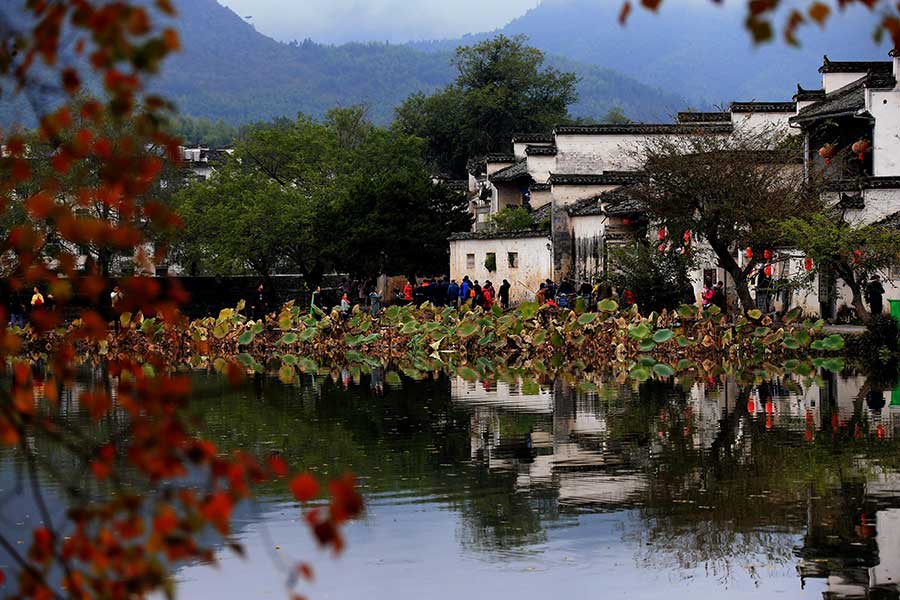







 |
|
Ancient Xidi and Hongcun villages.[Photo by Shi Guangde/Asianewsphoto]
Xidi ancient village is situated at the foot of Huangshan Mountain's Southern slope. It was originally built during the reign of Emperor Huangyou (1049-1054) of the Northern Song Dynasty (960-1127) and rebuilt during the reign (1449-1457) of Emperor Jingtai of the Ming Dynasty (1368-1644). Xidi village contains about 300 buildings in the Hui Style of the Ming and Qing dynasties (1644-1911). Brick and wood dominate, with exquisite stone archways, stone carvings, and stone-paved streets and courtyards. The most popular tourist attractions in Xidi Village include Lingyun Pavilion, Ruiyu Pavilion, Cishi House, Daifu House, and Qingyun House. Hongcun village is about 11 km from the county town of Yixian. The whole village was originally laid out in the shape of an ox. The west end of the village, called Leigang Hill, resembles an ox head and that is where two huge trees stand like ox horns. At the front and rear of the village are four bridges that span a Jiyin stream and resemble four legs of the ox. The several hundred well-arranged houses form the body of the ox, and the 1,000-meter-long Jiyin stream that meanders through the village is regarded as its intestines. A crescent pond in the village is the ox's fourth stomach, and a larger South Lake is its reticulum, the second stomach. The villagers of Hongcun long ago designed this marvelous landscape. |